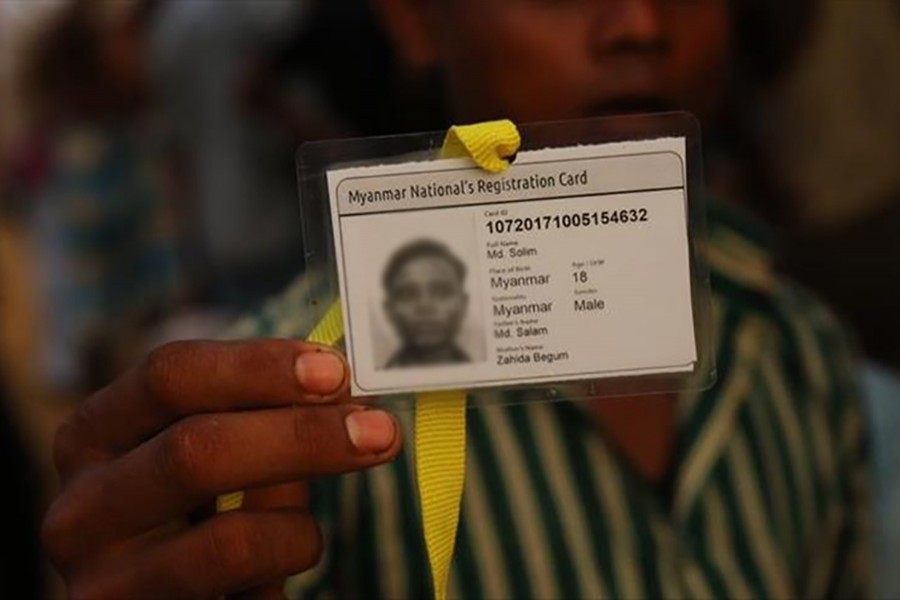Myanmar claims that Bangladesh has agreed to stop labelling the identity cards it has been issuing Rohingya refugees as "Myanmar National's Registration Card, ' Myanmar media reported on Wednesday.
Myanmar made a request to this effect during a three-day visit to Myanmar by Bangladesh's foreign minister Abul Hassan Mahmood Ali.
His visit included a day-long trip to northern Rakhine State's Maungdaw Township, where military crackdown in August 2017 drove some 700,000 Rohingya to Bangladesh seeking refuge.
On his visit, Abul Hassan held meetings in Naypyitaw and Rakhine State with Vice President U Myint Swe, social welfare minister U Win Myat Aye, state counsellor's office minister U Kyaw Tint Swe and with an interfaith group in Yangon.
On Saturday, Myanmar announced that it reached seven agreements with the foreign minister including a promise "to revise the language used on the cards issued by Bangladesh."
On Monday, U Win Myat Aye told the Irrawaddy that Myanmar asked Abul Hassan to change the language on the ID cards Bangladesh was issuing the refugees that describe them as Myanmar nationals and to stop referring them as "forcibly displaced."
Neither the announcement nor the social welfare minister explained what Myanmar wants "Myanmar National's Registration Card" replaced with.
But U Win Myat Aye said Myanmar objected to "forcibly displaced" because, he claimed, most of the refugees were not technically forced out by the military.
He conceded that some were forced, but that most left later on as the gradual departure of neighbours made it untenable for them to continue to make a living in their communities.
"They just left very gradually and no government officials gave orders or forcibly drove them out. The real situation is not the way they describe it," said U Win Myat Aye, claiming that the refugees object to the term as well.
He said some of the displaced people may be Myanmar nationals but most of them would need to go through a verification process.
An August 11 statement from the Bangladesh foreign affairs ministry, however, a day after Abul Hassan's meeting with U Myint Swe, makes no mention of any agreement on nomenclature and actually uses the term "forcibly displaced Myanmar nationals" twice.
Bangladeshi officials were quoted by the global media claiming that the omission of ethnicity was in line with international practice.
In early October, Bangladesh started issuing new ID cards labelled "Rohingya People Registration" that included their place of birth and listed their nationality as Rohingya. It is unclear whether the first cards were revoked or replaced.
Both cards were issued by Bangladesh's Immigration Department.
Separately, Bangladesh and the UN's refugee agency have jointly started issuing the refugees over 12 years old yet another type of ID card that includes anti-fraud features including biometric data but no ethnic identity.
In addition to changing the wording of the Bangladeshi ID cards, Myanmar said, Abul Hassan agreed to set up a hotline between the two governments to discuss repatriation, expedite the repatriation process, hand out the agreed-to repatriation forms in the camps, and ensure that the forms were filled out voluntarily.


